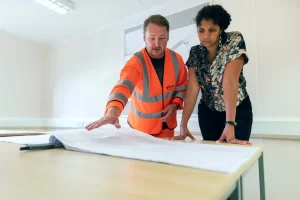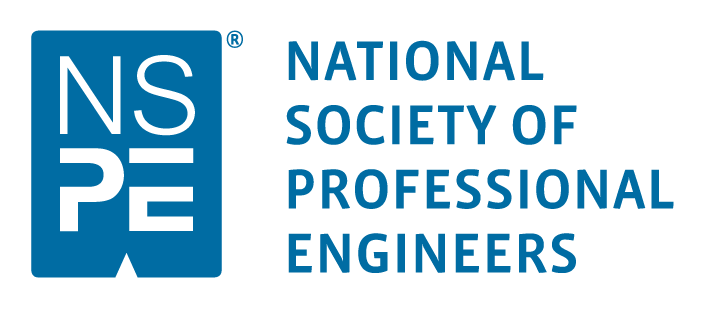The Role of Post-Construction Inspections in Building Safety
Structural integrity is critical for protecting lives and property. While this aspect should be prioritized in the construction phase, assessing it post-construction is equally important. A building inspection helps property owners evaluate the safety and condition of their buildings.
In New Jersey, various regulations govern inspections of existing buildings post-construction. Understanding these inspections helps maintain the integrity and safety of buildings long after the construction crews have left.
Understanding Post-Construction Inspections
Post-construction inspection is a systematic evaluation conducted after the completion of construction activities and before the handover of the building to the owner or tenants. It may also include subsequent inspections during the occupancy phase to monitor the building’s performance over time.
Maintaining a building is not just a one-time task but a continuous process of verifying its safety, functionality, and compliance. It is also about adapting to the building’s evolving needs and sustaining a safe environment for all occupants.
Over time, buildings experience wear and tear. Inspections help detect and address issues like cracks, leaks, or weakened structures before they become major problems. A building owner that has an engineer complete regular inspections and properly maintains the building provides a safe environment for the occupants and reduces risk to them.
During a post-construction inspection, a qualified NJ structural engineer assesses the building’s compliance with approved plans, building codes, and industry standards. They look for any deviations, defects, or deficiencies that may compromise safety or structural integrity.
Post-construction inspections may include visual assessments, testing of building systems, measurements, and documentation of findings. The inspection report will outline any non-compliance issues discovered and recommend corrective actions to address them.
Property Condition Assessment of Existing Buildings
New Jersey has stringent standards for maintaining structural integrity and building safety depending on the building construction type and occupancy. However, there is no universally mandated requirement for post-construction inspections.
The decision to conduct post-construction inspections is often driven by specific issues raised by concerned parties or initiated voluntarily by the building owners or a potential buyer of a property.
Specific regulations will be applicable depending on the type of building and the nature of the inspection conducted. Property Condition Assessments of existing buildings are conducted in accordance with ASTM Standard E2018.
SEI/ASCE 11-99: Guideline for Structural Condition Assessment of Existing Buildings
Standard SEI/ASCE (Structural Engineering Institute of the American Society of Civil Engineers) 11-29 is a good starting point when considering post-construction inspections. The code details a systematic approach to identifying potential structural issues in a property.
1. Pre-Assessment
A building inspection typically starts with the qualified engineer gathering and reviewing existing documents (e.g., original construction drawings, previous inspection reports, maintenance records, and any documentation on renovations or repairs). Understanding the building’s plans and any modifications helps identify potential risks and areas requiring closer examination or immediate attention.
2. Visual Inspection
The building inspection engineer NJ will conduct a walk-through of the building to identify visible signs of distress, such as cracks, corrosion, deflections, or other structural anomalies. During this process, they note any immediate safety hazards or areas requiring urgent attention.
3. Testing and Sampling
If the visual inspection determines additional investigation is needed, testing can subsequently be conducted. Performing non-destructive testing (NDT) techniques allows for the evaluation of structural elements without causing damage to the property. NDT strategies may include ultrasonic testing, ground-penetrating radar, and infrared thermography.
If necessary, material samples may be taken for laboratory testing to determine properties like strength, composition, and durability. The engineers will use analytical models to assess the building’s structural capacity and performance under current and anticipated loads.
4. Data Analysis and Assessment
The commercial building inspector NJ assigns condition ratings to different structural elements based on their observed state and test results. They will use a standardized rating system to achieve consistency and clarity in reporting. From this, they identify and document deficiencies, their potential causes, and their impact on the building’s structural performance.
5. Reporting
In this phase, the inspector summarizes findings, including detailed descriptions of observed conditions, test results, and analytical outcomes. The report will include photographs, diagrams, and other visual aids to enhance clarity.
Recommendations for corrective actions, such as repairs, reinforcements, or further monitoring, should be offered. Additionally, the inspector should suggest maintenance practices to prevent future issues and extend the building’s lifespan.
6. Follow-Up Actions
Post-construction inspection assists building owners or managers in implementing recommended actions. This may include engaging qualified contractors for repairs and monitoring the effectiveness of these corrective actions.
Challenges in Post-Construction Inspections
Post-construction inspections play a pivotal role in maintaining building safety, yet they come with challenges. Common issues encountered during these inspections include the following:
- Hidden defects (e.g., invisible signs of structural weaknesses, water infiltration issues, and problems with mechanical systems)
- Undocumented building modifications
- Managing compliance with changing building codes
- Addressing the variability in inspection standards
Solutions and Best Practices
To overcome these challenges, adopting a proactive and systematic approach is crucial.
- Advanced Inspection Technologies: Utilizing infrared thermography, drones, and non-destructive testing methods can help uncover hidden defects.
- Thorough Documentation: Up-to-date records allow the structural engineer NJ to quickly pinpoint areas that might require special attention.
- Standardized inspection protocols and checklists can help maintain consistency and comprehensiveness in evaluations.
Consult with Qualified Inspection Engineers in New Jersey
Post-construction inspection of existing buildings, though not required, is essential for maintaining structural integrity and safeguarding occupants. Consulting with a qualified structural engineer New Jersey for this task is critical to comprehensively understanding the building’s condition and potential risks.
A skilled professional brings expertise in identifying hidden defects and undocumented modifications, as well as maintaining compliance with changing building codes. Their thorough assessments provide building owners and managers with actionable insights to address issues promptly. By partnering with qualified inspection engineers in New Jersey, building stakeholders can proactively manage risks and prioritize the well-being of occupants.
Our Professional Engineers are experienced in building inspections and the complex systems (mechanical, electrical, plumbing, HVAC, fire protection, life safety) in addition to the basics of structural engineering. The emphasis on structural is in the identification of causes of deterioration, not necessarily the skill in designing new construction. Often, the defects that arise in structures are the result of failures in the building envelope and the intrusion of moisture that attacks all structural materials. Experience in evaluating building envelope is critical to the ability to understand potential structural issues. Look for engineers especially trained and experienced. Professional Engineers like those members of the National Academy of Building Inspection Engineers have these qualifications.
For exemplary post-construction inspection services, consider Lockatong Engineering. With a competent team of skilled professionals and a commitment to thoroughness, Lockatong Engineering provides comprehensive assessments that go beyond routine inspections. Our approach considers the distinct needs of each building, delivering actionable recommendations to optimize safety and longevity.
Trust Lockatong Engineering to be your partner in safeguarding your investments and protecting the well-being of occupants. Contact us to schedule an appointment.








